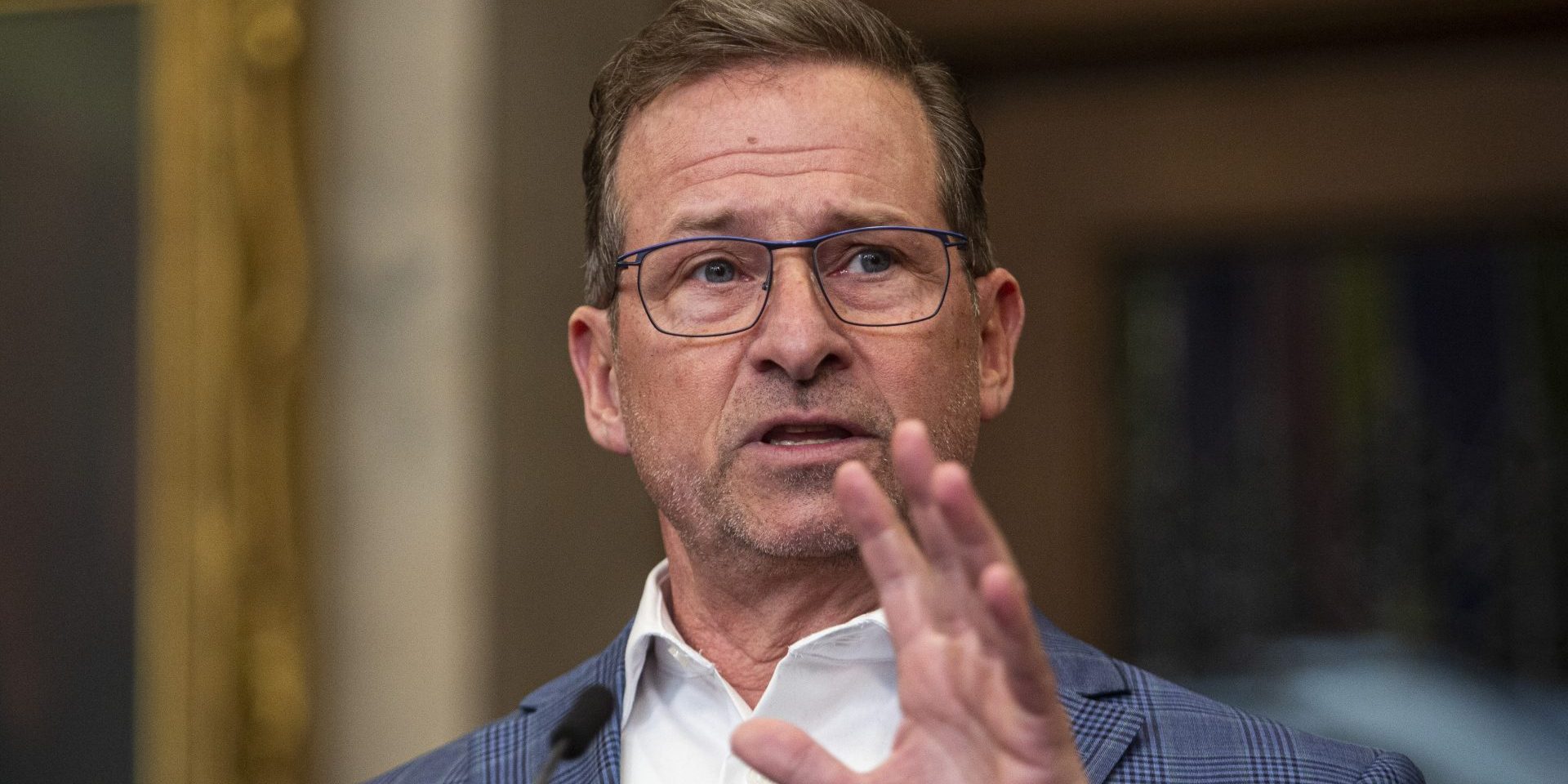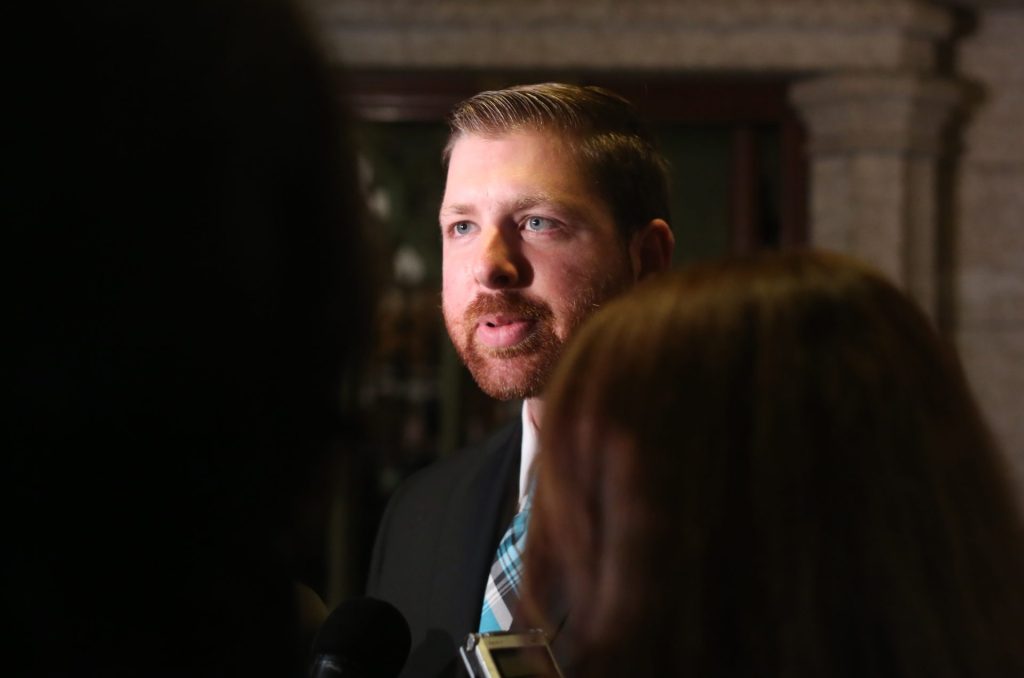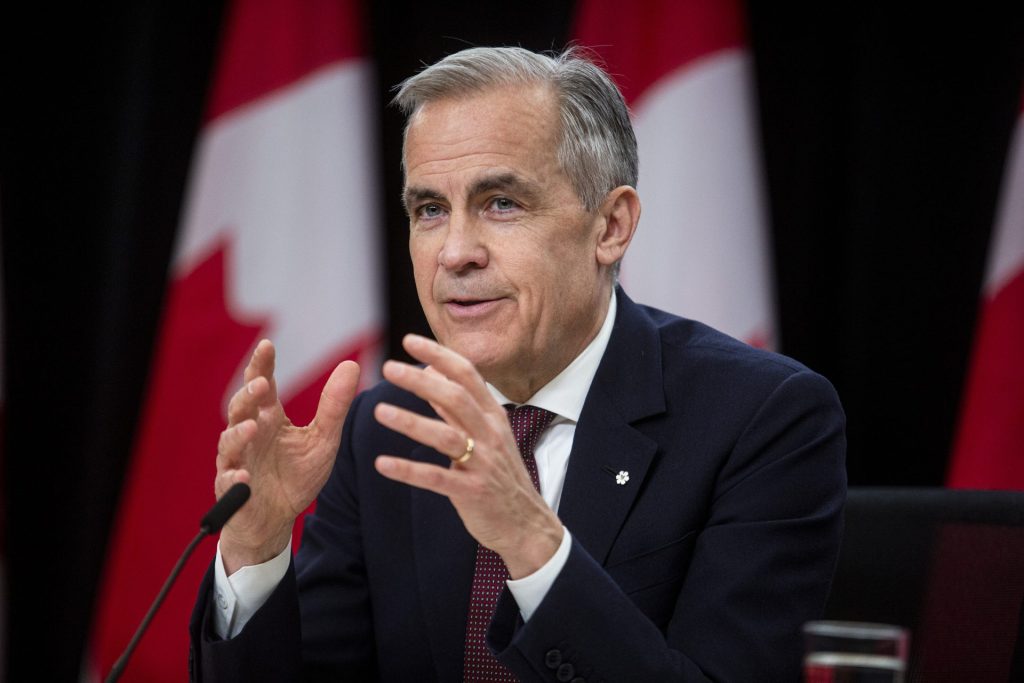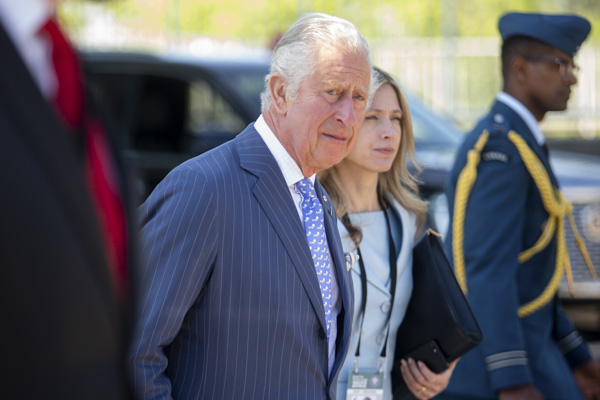Bloc Québécois slam Carney for inviting ‘foreign’ King to open Parliament, opt out of attending Throne Speech

Prime Minister Mark Carney’s invitation to King Charles III to deliver the Throne Speech has drawn fierce criticism from the Bloc Québécois, who will be absent from the Red Chamber for the May 27 event, as the caucus renews calls to remove the requirement that MPs pledge loyalty to the monarch to take their seat in Parliament. Some observers question whether Carney made the right decision, saying it could indicate his lack of understanding of Quebec.
Bloc MP Xavier Barsalou-Duval said people in his riding of Pierre-Boucher—Les Patriotes—Verchères, Que., are “talking to him a lot” about the King’s visit, calling it “a really bad start” for Carney (Nepean, Ont.).
“It was disrespectful to a lot of Quebecers who gave a chance to the Liberals,” Barsalou-Duval said in an interview with The Hill Times, explaining that many Quebecers don’t support the monarchy. “And the first act of Mr. Carney after that is to decide to bring the King here.”
This election, the Bloc Québécois’ caucus shrunk by nearly one third to 22 members, with many of its 10 lost seats having flipped to the Liberals. Instead, Quebecers elected 44 Liberal MPs out of the province’s 78 ridings, as voters both in the province and across the country grappled with defining ballot-box questions on the economy, and of how best to tackle the ongoing trade war with the United States, pushing third parties to the wayside.

According to a 2023 survey from Leger, 78 per cent of Quebecers think it’s time to reconsider ties to the British monarchy, compared to 63 per cent of Canadians.
Barsalou-Duval also called Carney’s decision to invite the King “surprising” given it’s nearly 50 years since the last time the Throne Speech was delivered by a monarch—delivered by Queen Elizabeth II in 1977.
“After all those years where I could say that the dust has fallen on the monarchy in Canada and a lot of people were thinking that at some point we could cut the link,” he said. “Instead of letting it die slowly … the new prime minister decides to put it in honour. … I have to say it’s a very surprising thing.”
Carney announced King Charles III’s visit in his first post-election press conference, saying that having the King deliver the Speech from the Throne to open Canada’s Parliament “clearly underscores the sovereignty of our country,” in a nod to U.S. President Donald Trump’s 51st-state comments.
“This is a historic honour which matches the weight of our times,” Carney told reporters on May 2.

The Bloc’s response was swift. The party posted on X on the same day denouncing the decision, and calling King Charles a “foreign monarch.”
“Inviting Charles III to open the new legislature reveals the irreconcilable Liberal values with those of Quebecers who reject this institution and are committed to the values of democracy and modernity,” the post said in French. “Mark Carney, to embody the attributes of Canadian sovereignty, is inviting a foreign monarch to inaugurate the legislature of which he will be prime minister. Strange.”
A few days later, following his party’s first caucus meeting on May 7, Bloc Québécois Leader Yves-François Blanchet (Beloeil—Chambly, Que.) confirmed that his 22-member caucus would not be attending the Speech from the Throne “out of principle”—also noting that there have only been a few exceptions where the Bloc has attended the speech, and this year would not be one of them. Instead, Bloc MPs will be in their offices at the time, reading the speech.
“To assert Canada’s sovereignty, we seek the symbol of the fact that Canada has the King of England as its sovereign,” he said to reporters in French. “There is a complete inconsistency which seems to reflect Mr. Carney’s personal sympathies rather than a relevant reading of Quebec’s sensibility.”
Barsalou-Duval echoed Blanchet’s assessment, calling the move a “demonstration of how disconnected the power in Ottawa is from Quebec.”
“I wonder, if for [Carney] … changing the Canadian flag for the Union Jack or changing the Canadian anthem for God Save the King, would be also a gesture of sovereignty?” he told The Hill Times. “I think it’s the same kind of gesture that he’s just made.”
Bloc protest ‘political bluster’ or smart strategy?
Jonathan Kalles, a Liberal strategist and the Quebec vice-president of McMillan Vantage, called the Bloc’s denouncements on the King’s attendance “political bluster.”
“I don’t think Quebecers care,” he told The Hill Times. “Quebecers voted for Mark Carney for a very, very clear reason—the largest support from Quebec for the Liberal leader since Pierre Trudeau—and that’s … because they’re concerned about Donald Trump’s tariffs, fear for their job, [and] the economy.

Jean-François Daoust, a professor of political science at the University of Sherbrooke, called the invitation “very odd, strategically speaking,” and suggested Carney or his advisers lack understanding of the province.
“These are the kind of … mistakes that will last, you know, I don’t know, one week or so,” he said. “That said, it might signal something more deeper, which is that Mark Carney either does not understand Quebec … [or] he is not surrounded by people who can offer clear insights about potential electoral risk with Quebec voters, and that might be more dangerous for the Liberals.”
Daoust also said that Carney’s rationale for inviting the King—to underscore Canada’s sovereignty—is flawed.
“Is inviting the King really reaffirming Canada’s sovereignty in any way?” he said. “If so, then it might become reasonable. … But so far, to the best of my knowledge, Mark Carney has not provided an answer as to how, in any way, inviting the King reaffirms Canada’s sovereignty.”
Peter Graefe, an associate professor of political science at McMaster University, said that Carney’s decision to invite King Charles serves a “purpose” as it distinguishes Canada from America as having “particular kind of constitutional and political tradition,” but that the Bloc is using the monarch’s arrival to remind voters about the disconnect between Quebec and the rest of Canada.
“This last election … the line was about the difference between Canada and the United States, not between Quebec and the rest of Canada,” he said. “This is a way to kind of set the clocks back and remind people … [that] the Quebec electorate has been well trained to treat elections as a sort of a conflict between sovereigntists and federalists.”
Bloc pitches private member’s bill to update MP oath
King Charles’ visit comes as the Bloc Québécois are set to table a private member’s bill to end the requirement for MPs to pledge loyalty to the monarch prior to taking a seat in Parliament.
Barsalou-Duval said Canada is a “country that needs to evolve” on the matter, and that other parties have expressed support for the motion, also highlighting that it’s not only Quebecers who may be uncomfortable with the pledge.
“[It] is the humiliation for a lot of people, not only Quebecers, but also for some people from elsewhere in Canada,” Barsalou-Duval said. “A nation, it builds on symbols … I think [the King] is a symbol that is excluding Quebec and Quebecers and a lot of Canadians.”
Former Liberal MP René Arseneault, who didn’t seek re-election this year, brought forward a similar reform bill in 2023, which would have given MPs and Senators the option to swear a pledge to Canada, but the bill did not pass, though it received support from a number of MPs from all parties.
The April 28 election left the Bloc the only third party in Parliament to reach the threshold of official party status, with the Liberals just three votes shy of a majority government. The NDP’s caucus was wiped out to a meagre seven seats, and only Green Party Leader Elizabeth May (Saanich-Gulf Islands, B.C.) was elected to represent her party. This means that the NDP will not be able to sit on committees, leaving the Bloc as the sole third party outside of the government opposition to have official party status.
Kalles said that without the NDP, the Bloc has an “interesting” opportunity in the House, as there will be no NDP vote to break up filibustering on committees, a role the New Democrats often played under the supply-and-confidence agreement in place for much of last Parliament, propping up the minority government.
“It will be the Conservatives and the Bloc who, in most cases, have the majority of seats on committees,” he observed. “Will the Bloc play the rational adult and counter the Conservatives’ attempts to play petty politics or not? I think in the short term, they will act like the grown ups in the ring. I think the big question is, how long that’ll last, right?”
ewand@hilltimes.com
The Hill Times






 LICENSING
LICENSING PODCAST
PODCAST ALERTS
ALERTS













